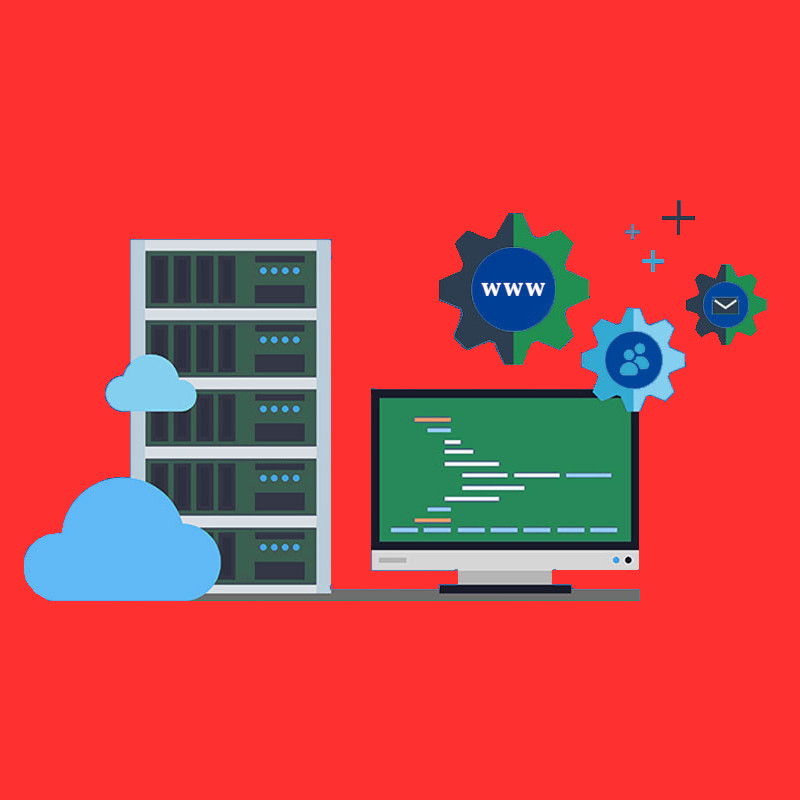Enterprise software should work hard. That means handling high volumes of users, automating operations, and staying reliable even under pressure. Odoo does all of that—but only when it runs on infrastructure built for it. Hosting matters. Without the right environment, even the best ERP will fail to deliver.
This article breaks down what makes Odoo hosting for enterprises different. It focuses on speed, security, flexibility, and what your business gains from customizing both the app and the server setup.
Key Highlights
- Odoo is powerful, but only when backed by optimized hosting
- Enterprises need performance, uptime, and custom control
- VPS and dedicated hosting offer best results for scaling
- Managed Odoo hosting saves time and avoids downtime
- Custom setups improve security and integration
- Migration and support are critical in long-term hosting success
Why Basic Hosting Isn’t Enough

Generic web hosting won’t cut it for Odoo. Shared hosting limits performance, restricts access, and slows down response times as traffic grows. Most shared providers also don’t allow deep server access, which blocks advanced Odoo modules or third-party integrations.
For enterprises, this creates real risks:
- Delayed operations from slow dashboards
- Failed transactions during peak usage
- Security vulnerabilities from poor isolation
- No root access for tuning PostgreSQL or worker processes
If you rely on Odoo to manage finance, supply chain, sales, or HR, performance gaps turn into business failures.
Managed Hosting Designed for Odoo
The best option for serious business use is managed Odoo hosting—a dedicated environment built specifically for the platform. Odoo hosting by trusted providers like SolaDrive removes the need for in-house server maintenance while giving full control over settings, performance, and updates. It allows teams to scale, run custom modules, and handle higher user traffic without slowdowns.
Managed hosting typically includes:
- Server-level optimization for Odoo
- Pre-installed dependencies and PostgreSQL
- Regular backups and monitoring
- Fast support with Odoo-specific expertise
- Security hardening and firewall configuration
VPS vs Dedicated Servers for Odoo

Enterprises need to choose the right foundation. Both VPS and dedicated servers work for Odoo, but the right pick depends on your scale.
VPS (Virtual Private Server)
- Best for mid-sized businesses
- Scalable without full hardware cost
- Isolated environment with root access
- Can be upgraded easily
Dedicated Servers
- Ideal for high-performance needs
- Full resources reserved for your Odoo instance
- More control, better performance under heavy usage
- Required for complex setups or high transaction volume
For growing companies, starting on a VPS and upgrading to a dedicated server later is often a smart path.
Key Configuration Points for Better Performance
Odoo can run slowly out of the box if the server isn’t tuned. Here’s what makes a big difference:
- Workers: More workers mean more concurrent users supported. The number should match CPU and memory size.
- PostgreSQL tuning: Default database settings don’t fit large-scale operations. Adjusting cache size and connection pooling is critical.
- Reverse proxy: Using Nginx or Apache with proper buffering and caching helps avoid timeouts.
- SSL encryption: Secure connections are non-negotiable for business data. Let’s Encrypt or custom SSL should be enforced.
- Automated backups: Always store offsite backups, at least daily, with the ability to restore quickly.
A good managed host handles all of these tweaks automatically or offers a control panel to apply them easily.
Why Customization Needs the Right Hosting

Odoo’s strength lies in how easily it adapts to enterprise workflows. It’s more than just an out-of-the-box ERP—companies rely on it to match specific industry needs, automate processes, and integrate tightly with internal tools. But that flexibility doesn’t mean much if your hosting can’t handle the demands behind the scenes.
Most serious Odoo deployments involve:
- Custom-built modules tailored to specific tasks
- Large databases with thousands of records and growing user activity
- Integrations with external platforms like Salesforce, Magento, Shopify, Power BI, or in-house solutions
- Automated workflows, reports, and notifications running on set intervals
To run all that smoothly, your hosting must allow full access and configuration control. If you’re locked out of the backend, you can’t fix bugs, push updates, or tune performance. You’re stuck waiting for support, losing time, and risking system crashes during peak use.
You need a host that allows:
- Full SFTP or SSH access – So developers can troubleshoot, upload files, and manage permissions directly
- Module deployment from Git repositories – For proper version control and collaboration during development
- Worker configuration – Letting you scale worker threads based on real-time traffic and usage
- Scheduled cron jobs – Essential for recurring tasks like reports, invoicing, or syncing with external systems
- Custom PostgreSQL settings – To tune database performance, especially for complex queries or large datasets
Without these capabilities, performance suffers. Modules can crash. Features may not load. Users wait. Admins get blocked.
For enterprises building real workflows around Odoo—CRM pipelines, order tracking, accounting, or help desk support—custom hosting is the only viable choice. Every extra feature added to your system becomes a potential failure point if the hosting environment can’t support it properly.
Real Security, Not Just Talk
Odoo stores sensitive business data: client records, sales contracts, payroll information. Basic hosting often ignores this.
Enterprise-grade Odoo hosting should include:
- DDoS protection
- Web application firewalls (WAF)
- Isolated environments per account
- Data encryption in transit and at rest
- Two-factor authentication for admin panels
Many providers advertise security but offer little beyond a standard SSL. Always check what’s actually enforced and what you have to configure yourself.
Uptime, Monitoring, and Response
Enterprises can’t afford downtime. Whether during work hours or weekend processing runs, Odoo must stay available.
Look for hosting that guarantees:
- 9% uptime minimum
- 24/7 real-time server monitoring
- Hardware failure protection or auto-switching
- Quick response from techs trained in Odoo hosting issues
Managed hosting shines here. Issues get fixed before they affect users, and scheduled maintenance is communicated clearly in advance.
Migration Support and Onboarding

Migrating from one host to another, or from self-hosted to a managed solution, is risky if rushed or unsupported.
Good Odoo hosting services offer:
- Free or assisted migration
- Environment cloning for testing
- Version upgrades without data loss
- Step-by-step onboarding with documentation
This matters especially if your company already runs a live Odoo instance with years of data and users that can’t experience downtime.
Support You Can Actually Use
Not all hosting support is equal. Generic tech teams can’t help you debug Odoo-specific issues like failed modules, misconfigured cron jobs, or slow performance from wrong worker allocation.
Look for support that covers:
- Odoo performance issues
- Dependency troubleshooting (Python, PostgreSQL)
- Log analysis for crash or error reports
- Advice on scaling and security
You want specialists who’ve seen hundreds of Odoo instances, not someone reading from a script.
Final Thoughts
Odoo can transform how your enterprise runs—but only if it’s hosted right. The wrong hosting limits what Odoo can do. The right one removes those limits and gives you full control, security, and speed.
If your business relies on efficiency, automation, and smooth operations, switching to a managed Odoo hosting solution is not optional—it’s necessary.
Choose infrastructure that supports the full power of Odoo. Don’t wait for slow dashboards or data loss to remind you why hosting matters.







